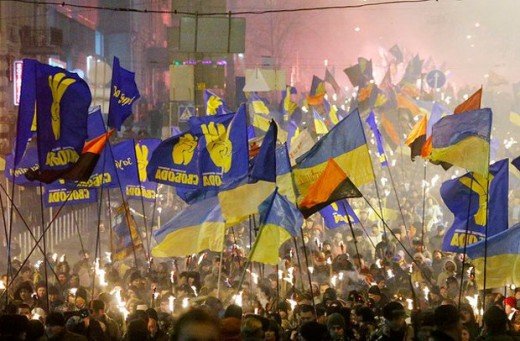The Ukrainian Conflict: A Ukrainian Nationalist View, Part 2: The Maidan and Yanukovych

The Maidan and Yanukovych
In February 2010, Viktor Yanukovych became the president of Ukraine after defeating Yulia Tymoshenko in the second round of elections. (In Ukraine, if no candidate gains over 50% of the vote in the first round, the two leaders go into a one-on-one second round). Yanukovych obtained 48% of the vote, versus 45% for Tymoshenko.
The close relations of Tymoshenko and Vladimir Putin are well known in Ukraine. In fact, Tymoshenko’s imprisonment — which was one of the few deeds of the Yanukovych regime that the vast majority of Ukrainians, and especially Ukrainian nationalists supported — was vehemently opposed by not only the West, but Russia as well. It was Tymoshenko that essentially sold out Ukraine to Russia with highly corrupt gas-deals while she was prime-minister — actually one of the reasons she was sent to prison. It was because of these deals that nationalists urged voting against both candidates leading up to the elections in 2010.
Overall, the most influential oligarchs in Ukraine supported Yanukovych — often the deciding factor in Ukrainian elections. It’s worth also noting that, indeed, Eastern Ukraine gave Yanukovych an absolute majority, whereas Tymoshenko gained the support of the vast majority of western Ukraine (despite being herself a Russian-speaker from Eastern Ukraine). This is largely due not to separate views on Ukraine but internal battles between oligarchs, who largely control media and business in their respective regions. In both regions, the oligarchs are usually not ethnic Ukrainian, nor ethnic Russian, and quite often switch sides, but that is another topic for another day.
Indeed, on the most important internal questions that the Western and Russian media claim “divide” Ukraine, we see strong national unity. . . .



